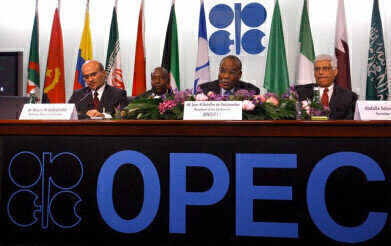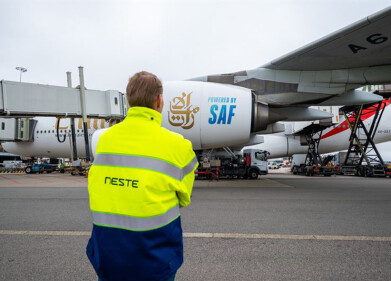Fuel for Thought
What Does the Future Hold for OPEC?
Jul 25 2016
Once a formidable economic cartel, the Organisation of the Petroleum Exporting Countries (OPEC) is now fraught with internal conflict. With cohesion rapidly dissolving, the question of whether or not it’s time for OPEC to finally disband has been brought to the table.
Across the globe, a host of major oil-producing countries are heavily dependent on crude as a key source of income. However, in the wake of the worldwide oil price drop, terrorism and political instability have emerged as pressing issues. These problems are amplified by lack of cohesion within the organisation.
An ‘every nation for itself’ mentality
In the past, OPEC had bigtime sway over oil prices, and enjoyed benefits in the form of higher prices. Yet when oil prices plummeted, backbiting among member nations began to destabilise the organisation’s power. OPEC members are now struggling to meet their own financial needs, which has created an ‘every nation for itself’ mentality. As a result, OPEC member countries are no longer in a position to financially support each other. Combine this with the vast geographical distances between the nations, and it’s a recipe for disintegration.
Times are tough, and everyone is feeling the sting, especially weaker members. Their powerful counterparts have failed to safeguard their interests during one of the worst oil crises in history, which has made forging ties with other nations an attractive option.
In search of a better deal
Recently, OPEC meetings have seen Iran and Saudi Arabia clash over a host of issues, which has hindered the development of meaningful resolutions. When OPEC and Russia attempted to ignite a production freeze the Saudis blocked the bill for its exclusion of Iran. This lack of solidarity has raised questions about the benefits of OPEC membership, and whether or not the organisation still serves a valuable purpose.
Experts suggest that members in Gulf nations such as Bahrain, Kuwait, Oman, Qatar and the UAE could be better served by localised groups like the Gulf Cooperation Council (GCC). Thanks to unified beliefs, mutual oil dependency and geographical proximity, some analysts suggest that they’re better positioned to form an alliance. Of course, in order to strengthen their presence, they would need to embrace the same single-market policy adopted by the EU, and step out as a united front.
As well as disrupting OPEC, the oil price crash has also forced producers to look at new ways to lower production costs. ‘Precision + lower operation cost + minimum initial investment = CID 510’ looks at the benefits of Constant Volume Combustion Chamber (CVCC) technology as a next generation alternative to the conventional CFR Engine.
Digital Edition
PIN 25.1 Feb/March
March 2024
In This Edition Safety - The technology behind the ION Science Tiger XT - Safety with ammonia and LOHCs as hydrogen carriers Analytical Instrumentation - Discussion on new tribology te...
View all digital editions
Events
Apr 28 2024 Montreal, Quebec, Canada
Apr 30 2024 Birmingham, UK
May 03 2024 Seoul, South Korea
May 05 2024 Seville, Spain
May 06 2024 Riyadh, Saudi Arabia


















